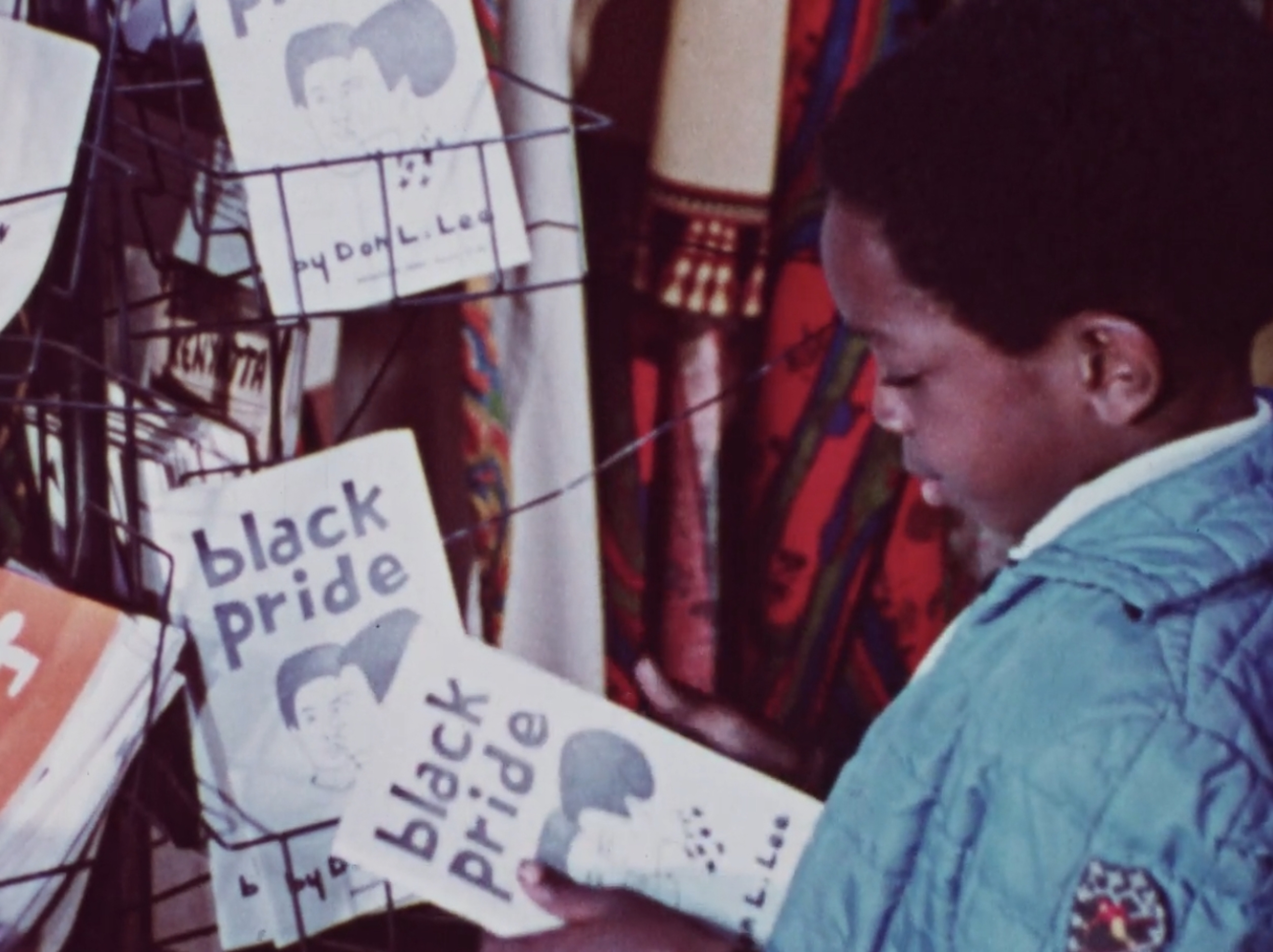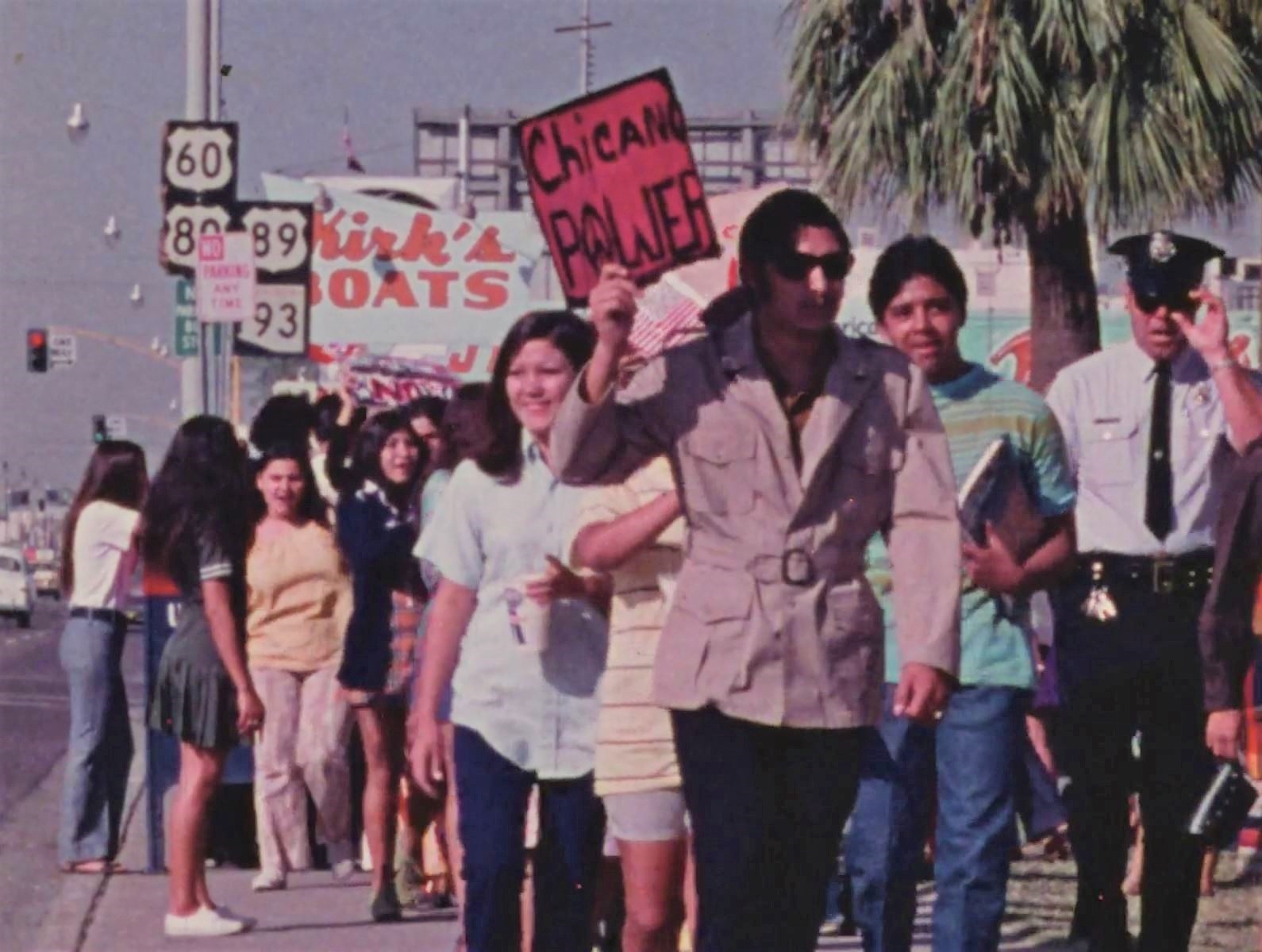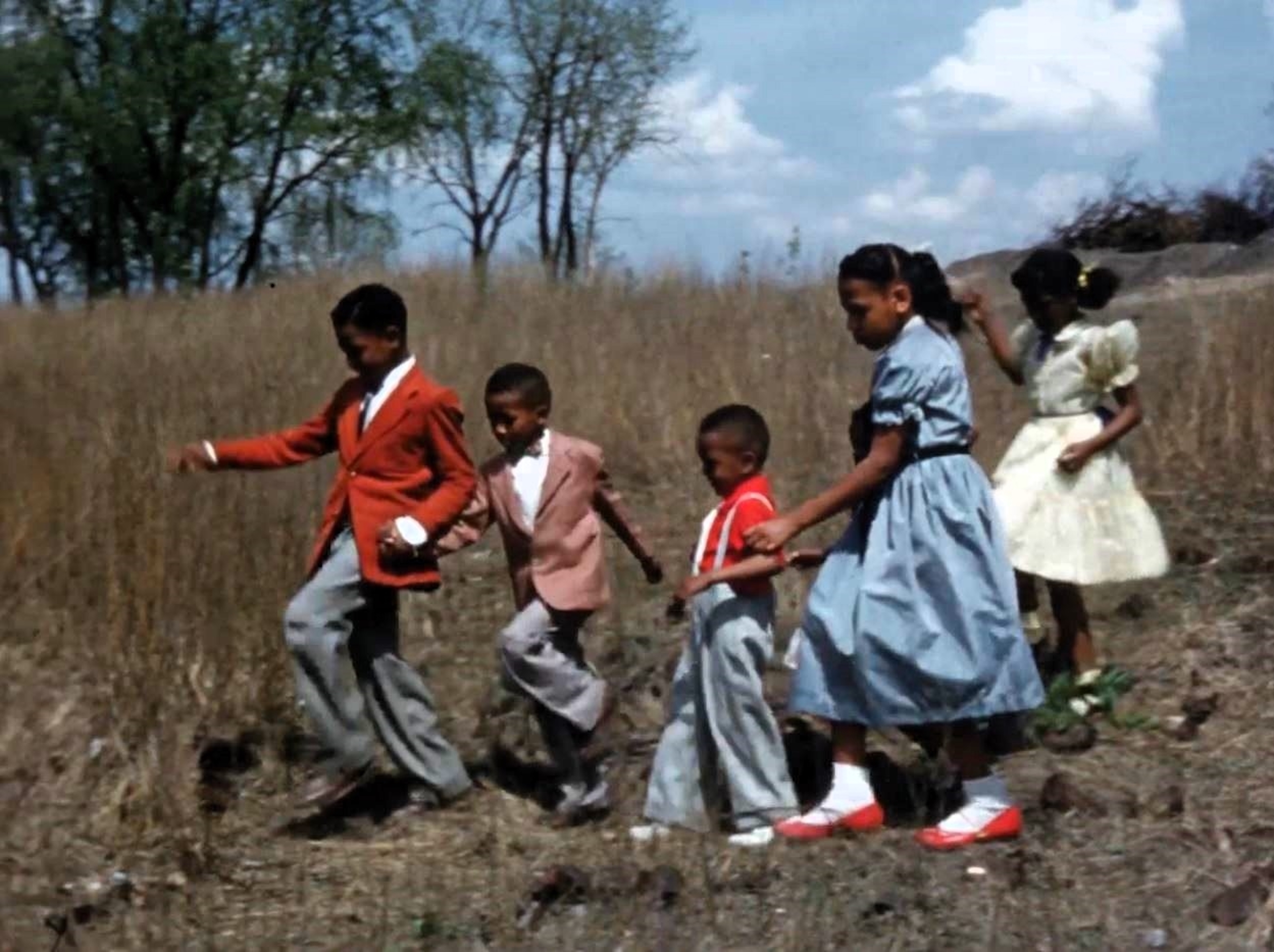Exhibition Dates: January 17–March 8, 2025
Opening Reception: Friday, January 17, 6–8 pm, Grunwald Gallery
Related Programming (details below): Friday, February 21, 6:30–8 pm (Inspired: An Evening of Experimentation); and Thursday, March 6, 6–8 pm (Action + Agency: Storytelling + Filmmaking)
Gallery Hours: Tuesday–Saturday, 12–4 pm. Closed Sunday and Monday.
YOU (probably) HAVEN’T SEEN THIS BEFORE (YPHSTB) is an exhibition that celebrates historically underrepresented narratives and motion picture practices that challenge and expand the spectrum of what is considered “cinema.” Curated by Carmel Curtis, Moving Image Curator & Digital Initiatives Lead, this selection of 34 rarely screened archival films has been preserved and made accessible thanks to the efforts of Indiana University Libraries Moving Image Archive.
Dating from 1937 to 2018, the 16mm films in YPHSTB represent 20th- and 21st -century North American communities including stories of those routinely excluded—elevating voices from rural Appalachia, to the Confederated Tribes of the Colville Reservation, to the “Black Belt” of the South Side of Chicago. YPHSTB illustrates the artistic merits of film as a medium rich in potential for abstraction and experimentation—through manipulations of light, illusions of movement, and non-linear representations of time. Furthermore, YPHSTB focuses on works that would not traditionally be seen on a movie screen, let alone on the walls of a gallery—this includes home movies, discarded outtakes, and science experiments.




